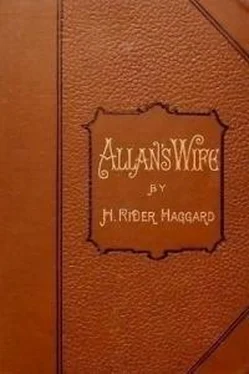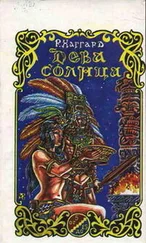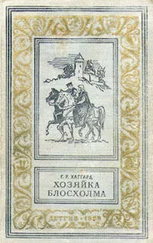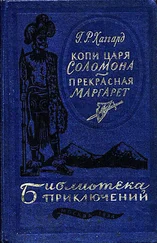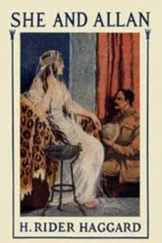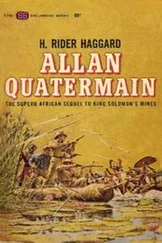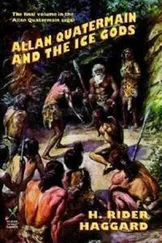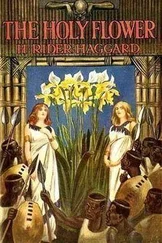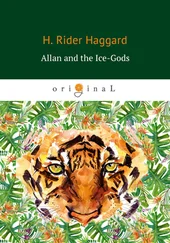I returned to the huts at mid–day to get some dinner. Stella said that she was going to pack during the afternoon, so I did not think it necessary to caution her about going out alone, as I did not wish to allude to the subject of Hendrika and the baboons unless I was obliged to. I told her, however, that I would come back to help her as soon as I could get away. Then I went down to the native kraals to sort out such cattle as had belonged to Mr. Carson from those which belonged to the Kaffirs, for I proposed to take them with us. It was a large herd, and the business took an incalculable time. At length, a little before sundown, I gave it up, and leaving Indaba–zimbi to finish the job, got on my horse and rode homewards.
Arriving, I gave the horse to one of the stable boys, and went into the central hut. There was no sign of Stella, though the things she had been packing lay about the floor. I passed first into our sleeping hut, thence one by one into all the others, but still saw no sign of her. Then I went out, and calling to a Kaffir in the garden asked him if he had seen his mistress.
He answered "yes." He had seen her carrying flowers and walking towards the graveyard, holding the little white girl—my daughter—as he called her, by the hand, when the sun stood "there," and he pointed to a spot on the horizon where it would have been about an hour and a half before. "The two dogs were with them," he added. I turned and ran towards the graveyard, which was about a quarter of a mile from the huts. Of course there was no reason to be anxious—evidently she had gone to lay the flowers on her father's grave. And yet I was anxious.
When I got near the graveyard I met one of the natives, who, by my orders, had been set round the kraals to watch the place, and noticed that he was rubbing his eyes and yawning. Clearly he had been asleep. I asked him if he had seen his mistress, and he answered that he had not, which under the circumstances was not wonderful. Without stopping to reproach him, I ordered the man to follow me, and went on to the graveyard. There, on Mr. Carson's grave, lay the drooping flowers which Stella had been carrying, and there in the fresh mould was the spoor of Tota's veldschoon, or hide slipper. But where were they?
I ran from the graveyard and called aloud at the top of my voice, but no answer came. Meanwhile the native was more profitably engaged in tracing their spoor. He followed it for about a hundred yards till he came to a clump of mimosa bush that was situated between the stream and the ancient marble quarries just over the waterfall, and at the mouth of the ravine. Here he stopped, and I heard him give a startled cry. I rushed to the spot, passed through the trees, and saw this. The little open space in the centre of the glade had been the scene of a struggle. There, in the soft earth, were the marks of three pairs of human feet—two shod, one naked—Stella's, Tota's, and Hendrika's . Nor was this all. There, close by, lay the fragments of the two dogs—they were nothing more—and one baboon, not yet quite dead, which had been bitten in the throat by the dogs. All round was the spoor of numberless baboons. The full horror of what had happened flashed into my mind.
My wife and Tota had been carried off by the baboons. As yet they had not been killed, for if so their remains would have been found with those of the dogs. They had been carried off. The brutes, acting under the direction of that woman–monkey, Hendrika, had dragged them away to some secret den, there to keep them till they died—or kill them!
For a moment I literally staggered beneath the terror of the shock. Then I roused myself from my despair. I bade the native run and alarm the people at the kraals, telling them to come armed, and bring me guns and ammunition. He went like the wind, and I turned to follow the spoor. For a few yards it was plain enough—Stella had been dragged along. I could see where her heels had struck the ground; the child had, I presumed, been carried—at least there were no marks of her feet. At the water's edge the spoor vanished. The water was shallow, and they had gone along in it, or at least Hendrika and her victim had, in order to obliterate the trail. I could see where a moss–grown stone had been freshly turned over in the water–bed. I ran along the bank some way up the ravine, in the vain hope of catching a sight of them. Presently I heard a bark in the cliffs above me; it was answered by another, and then I saw that scores of baboons were hidden about among the rocks on either side, and were softly swinging themselves down to bar the path. To go on unarmed as I was would be useless. I should only be torn to pieces as the dogs had been. So I turned and fled back towards the huts. As I drew near I could see that my messenger had roused the settlement, for natives with spears and kerries in their hands were running up towards the kraals. When I reached the hut I met old Indaba–zimbi, who wore a very serious face.
"So the evil has fallen, Macumazahn," he said.
"It has fallen," I answered.
"Keep a good heart, Macumazahn," he said again. "She is not dead, nor is the little maid, and before they die we shall find them. Remember this, Hendrika loves her. She will not harm her, or allow the babyans to harm her. She will try to hide her away from you, that is all."
"Pray God that we may find her," I groaned. "The light is going fast."
"The moon rises in three hours," he answered; "we will search by moonlight. It is useless to start now; see, the sun sinks. Let us get the men together, eat, and make things ready. Hamba gachla . Hasten slowly, Macumazahn."
As there was no help, I took his advice. I could eat no food, but I packed some up to take with us, and made ready ropes, and a rough kind of litter. If we found them they would scarcely be able to walk. Ah! if we found them! How slowly the time passed! It seemed hours before the moon rose. But at last it did rise.
Then we started. In all we were about a hundred men, but we only mustered five guns between us, my elephant roer and four that had belonged to Mr. Carson.
Chapter XII
The Magic of Indaba-zimbi
We gained the spot by the stream where Stella had been taken. The natives looked at the torn fragments of the dogs, and at the marks of violence, and I heard them swearing to each other, that whether the Star lived or died they would not rest till they had exterminated every baboon on Babyan's Peak. I echoed the oath, and, as shall be seen, we kept it.
We started on along the stream, following the spoor of the baboons as we best could. But the stream left no spoor, and the hard, rocky banks very little. Still we wandered on. All night we wandered through the lonely moonlit valleys, startling the silence into a thousand echoes with our cries. But no answer came to them. In vain our eyes searched the sides of precipices formed of water–riven rocks fantastically piled one upon another; in vain we searched through endless dells and fern–clad crannies. There was nothing to be found. How could we expect to find two human beings hidden away in the recesses of this vast stretch of mountain ground, which no man yet had ever fully explored. They were lost, and in all human probability lost for ever.
To and fro we wandered hopelessly, till at last dawn found us footsore and weary nearly at the spot whence we had started. We sat down waiting for the sun to rise, and the men ate of such food as they had brought with them, and sent to the kraals for more.
I sat upon a stone with a breaking heart. I cannot describe my feelings. Let the reader put himself in my position and perhaps he may get some idea of them. Near me was old Indaba–zimbi, who sat staring straight before him as though he were looking into space, and taking note of what went on there. An idea struck me. This man had some occult power. Several times during our adventures he had prophesied, and in every case his prophecies had proved true. He it was who, when we escaped from the Zulu Impi, had told me to steer north, because there we should find the place of a white man who lived under the shadow of a great peak that was full of baboons. Perhaps he could help in this extremity—at any rate it was worth trying.
Читать дальше
